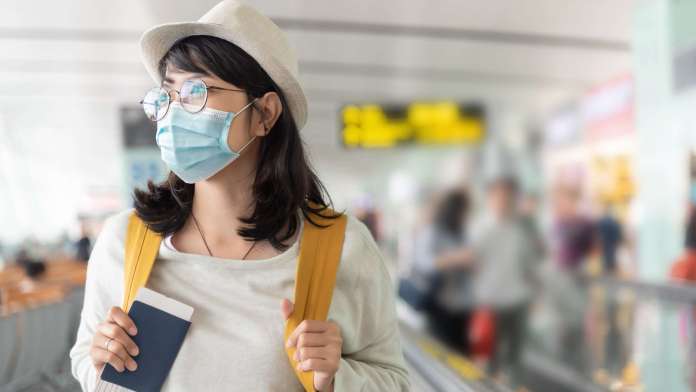Offering medical travel insurance to international patients is fast becoming an inseparable part of the customer experience explains Klaudia Futyma, Patient Advisor, at medical travel platform, ClinicHunter
Medical tourism, a global trend which opens up many opportunities for people who want or need treatment, was flourishing in the 21st century. Flight connection development, open-mindness, global advertising, easy access to the information and increased awareness of of what medical services could achieve abroad made medical tourism popular. The total amount of money spent by medical tourists all over the world reached many US$ billions (IMTJ estimated US$10-15 billion in 2018) until 2020, when the Covid-19 pandemic started[i].
However, years 2020-2021 were very hard for the industry. Patients were not allowed to travel abroad or they found it too risky. Hospitals generated below-average incomes, many of them just tried to survive. Hotels, airlines, transportation companies fought for life. Medical tourism agencies and facilitators had no international clients.
While late 2021 and 2022 show that medical trips are slowly back on track, many people still postpone travelling due to anxiety over the possibility of unexpected Covid-19 restrictions. Other potential patients have already lost their money on surgery booking and trip expenses, and some still wait for their treatment and health restoration, and the passing time does not help. Medical travel insurance could be the bright spot for this situation.
Medical travel insurance – an inseparable part of a medical trip
Medical trips involve some risks that patients have to accept, and that were accepted. Yet, Covid-19 has caused such uncertainty in terms of finance, safety, and health that medical tourists often refuse to travel unless they get additional protection from medical travel insurance.
Insurance for medical trips existed before the pandemic, yet it was not popular. People who wanted to get cover for treatment abroad needed to do extensive research as there were few companies offering this product. Now, post Covid-19, more insurance firms, clinics and medical tourism agencies have started to think about the safety of medical tourists.
The coverage of medical travel insurance varies between products, yet the most important factors for medical tourists to consider must include the following:
- covering all aspects of regular travel insurance (i.e. baggage damage, accidents, unexpected health issues);
- covering costs incurred for the treatment before the travel (e.g. some hospitals require non-returnable deposits as a booking fee) in case of trip cancellation due to pandemic or personal affairs;
- covering expenses, e.g. flight cost and accommodation, of a prolonged trip (medical tourists are always in risk that their health condition may not allow them to flight back as scheduled);
- covering the potential trip for revision treatment; and
- increased compensation amounts, e.g. in terms of death, health issues, medical expenses and assistance.
How to find good medical travel insurance?
Some patients are likely to check reliable comparison websites which rank medical travel insurance products, but we have found that many medical travellers will also ask their chosen clinic for a recommendation. When a clinic recommends such a product, it is worth considering using the insurance company that is already covering the clinic’s or surgeon’s insurance on a medical treatment, which could reassure a international patient that they are getting full protection.
Alternatively, patients can go direct to the insurance company. When patients choose this method, it is worth suggesting they ask for a sample policy or terms and conditions, to check thoroughly what it includes and how much it costs. These are also distributed by medical tourism facilitators and medical tourism agencies.
Ultimately, there is no “best” medical travel insurance, as everyone has different needs. It is worth encouraging clients not to treat the cost as a leading factor. It is important, but the crucial aspect is that medical travel insurance covers all the potential dangers and enables medical traveling with a sense of protection, comfort and financial security.
Do people really look for insurance?
After Covid-19 pandemic, there has been a resurgence in medical trips, and the accessibility and popularity of medical travel insurance is serving to accellerate this trend. The data from Clinic Hunter shows a significant increase in European clients getting this type of insurance.
In July 2022, the value of insurance sold by ClinicHunter and AXA Partners increased by 16 times compared to January 2022. This suggests that if such an insurance is offered, via the clinic, medical travel agency or direct; which is dedicated specifically to them and it is easy to access, then medical travellers are eager to include it in their treatment costs.
About the author
Klaudia Futyma is Patient Advisor at ClinicHunter, a global platform focused on international medical tourism. Its aim is to provide patients, especially from the UK, Scandinavian countries, Germany, the USA, with affordable treatment in Europe, particularly Poland, Hungary and Turkey. The platform specialises in dentistry, weight loss surgery, plastic and cosmetic surgery, orthopaedics, hair transplant and eye surgeries. With AXA Partners, ClinicHunter offers EU customers medical travel insurance for treatment abroad for €12.5 (US$12.54) per day.
[1] Sources:
Lapointe, Dominic. “Reconnecting Tourism after Covid-19:” Global Tourism and COVID-19, 2021, pp. 179–184., https://doi.org/10.4324/9781003223252-17.
“Medical Tourism Statistics and Facts.” Health, https://www.health-tourism.com/medical-tourism/statistics/.
Tatum, Megan. “Will Medical Tourism Survive Covid-19?” BMJ, 2020, p. m2677., https://doi.org/10.1136/bmj.m2677.








 ©2024 All rights reserved LaingBuisson
©2024 All rights reserved LaingBuisson 


